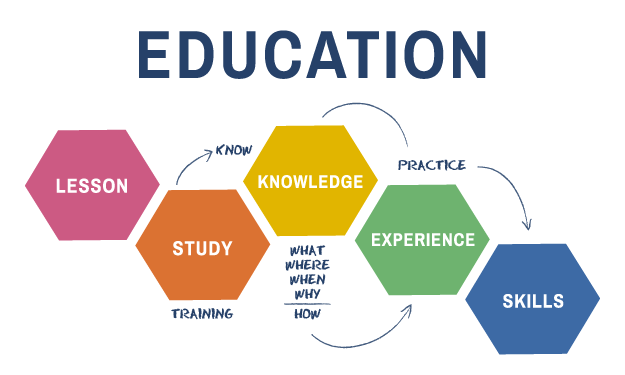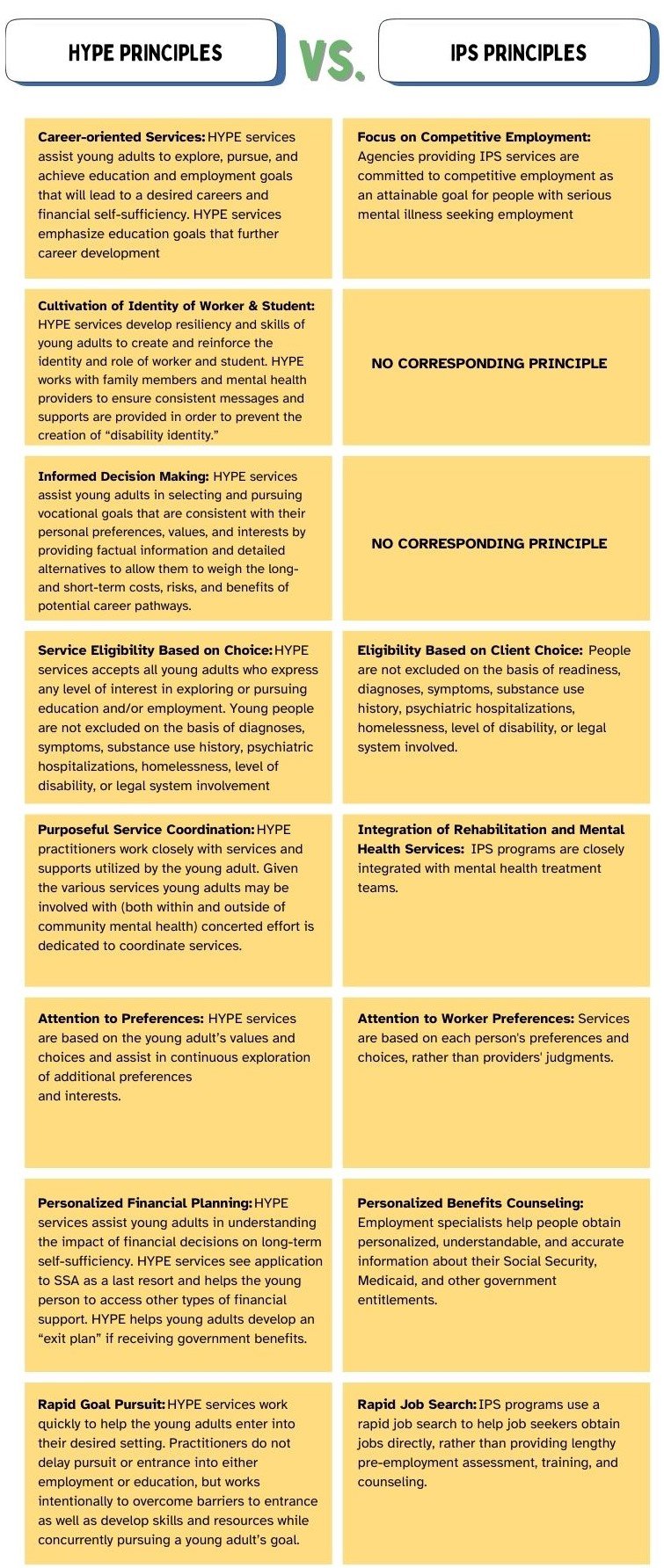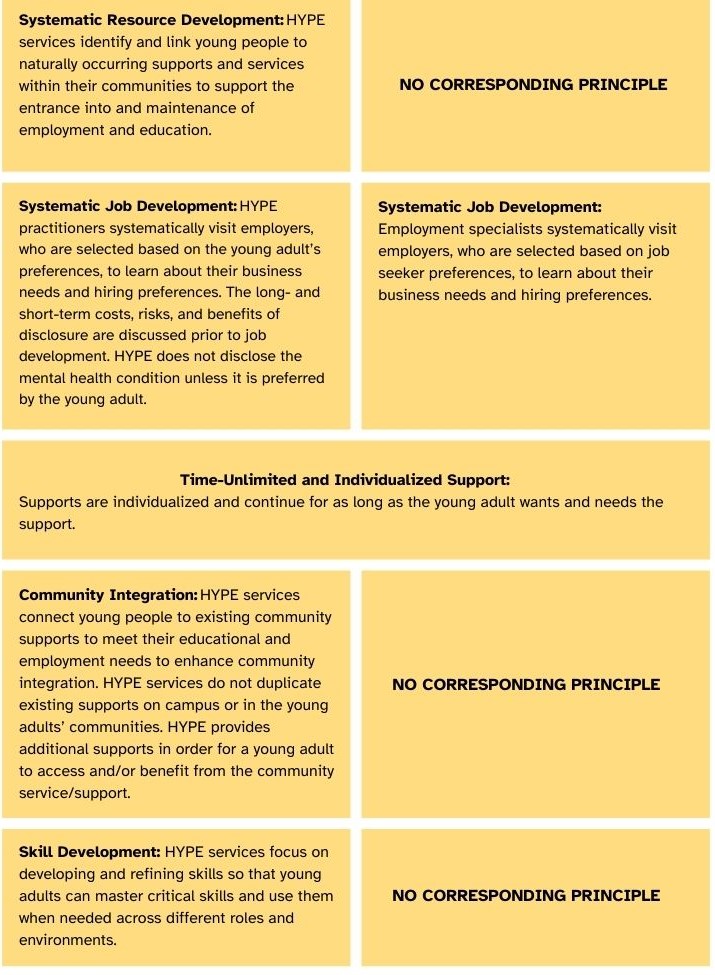Career Development

HYPE’s Approach to Employment Support
Individual Placement and Support (IPS) revolutionized recovery services for people with mental illness when it was first introduced, emphasizing: that employment is helpful and not hurtful for people living with mental illness; and that all people who desire to work should be given an opportunity (zero exclusion policy), and a “place then train” philosophy rather than the prevailing “train then place” (rapid job placement). Moreover, IPS has demonstrated better employment outcomes for adults with mental illness compared to other employment services through numerous randomized trials, thus it is considered an “evidence-based practice”.
However, the variable rate of employment for IPS is concerning (ranging from 27-75% of those participating in services are employed). Further, these positions are typically entry-level and dead-ended, with low wages and limited job tenure. Thus, IPS falls short in today's modern economy where young people need higher education (certificate, trade, college) to find jobs that are economically self-sufficient.
How is HYPE different from IPS-supported employment?
HYPE emphasizes entering and completing higher education as early as possible. This often means that education becomes the primary vocational pursuit on route to long-term employment. HYPE recognizes that higher education is a critical vocational step rather than a goal in and of itself. While education is often a long process, it is the mechanism by which one is able to secure a desired position with a salary that can support a financially independent and adult lifestyle.
HYPE builds motivation to go to school and the identity of the student.
HYPE practitioners intentionally cultivate school goals and send messages that school is possible and will be positive. A HYPE practitioner wants to cultivate awareness of the benefits of higher education and helps to develop a young adult’s internal commitment and motivation for education as a vocational step to achieve their long-term employment outcome.
HYPE is a career service and not a job placement.
HYPE uses work experience and higher education to build careers that are fulfilling emotionally and that are sustaining financially. Once employment services incorporate education, employment services become Career Services.
HYPE uses evidence-based practices to build careers.
HYPE practitioners use the best of supported employment principles, motivational interviewing, theories of stages of behavioral change, psychiatric rehabilitation, and goal development and acquisition to build a young adult’s internal commitment and motivation to their own goal and the capacity to achieve it.
HYPE supports students and workers.
HYPE embraces the mutually reinforcing activities of school and work and intentionally uses all experiences to build futures for young adults. When education and employment are incorporated, rapid goal pursuit (rather than rapid job placement) becomes the service principle. Practitioners work intentionally, purposefully, and quickly to move young adults through the stages of change, solidify their internal commitment and motivation to their goal, teach the critical skills to excel, and provide the necessary support, all while pursuing school and work.


Training & Consultation
Interested in incorporating HYPE’s approach to employment support and career development? Find out about our training and consultation opportunities to enhance programming and professional development at your organization.
